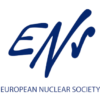PSI Pioneers Proton Radiotherapy To Treat A Rare Type of Cancer
Paul Scherrer Institute (PSI, ENS Corporate Member) and the University Hospital Zurich treated for the first time in Switzerland a patient affected by an oesophageal tumour by using proton radiotherapy.
This research is part of the pan-European PROTECT trial (PROton versus photon Therapy for Esophageal Cancer: a Trimodality Strategy), which compares the side effects of conventional radiotherapy with proton therapy to treat oesophageal cancer.
The project, coordinated by Aarhus University (Denmark), involves nineteen research partners across Europe, including universities, hospitals and research centres.
Protons are electrically charged particles. Their depth of penetration into the tissue is precisely calibrated beforehand. So they lose very little of their energy as they make their way to the site of the tumour, where they release their main effect, and potential damage to healthy tissue surrounding the tumour is therefore largely avoided.
Read the full PSI story.
Nuclear medicine and medical isotopes benefit thousands of patients every day in current clinical practice and have great potential for future clinical challenges.
Paul Scherrer Institute, like other ENS Corporate Members, carries out several research projects in this field, in order to support the fight against cancer and improve diagnoses, treatments, the quality of life and the survival chances of patients.
Read also this recent PSI story focusing on fighting metastatic prostate cancer.
This year, ENS, together with Euratom Supply Agency (ENS Member), organised the event Beating Cancer – turning the tide with medical isotopes, which gave us the opportunity to learn more about those amazing developments and to discuss the challenges ahead.
You can find its recording and all materials in our Special Newsletter.
